Inchon (also called Inchon!) is a 1981 epic war film about the Battle of Inchon, considered to be the turning point of the Korean War. The film was directed by Terence Young and financed by Unification Church founder Sun Myung Moon. It stars Laurence Olivier as General Douglas MacArthur, who led the United States surprise amphibious landing at Incheon, South Korea in 1950. Also featured are Jacqueline Bisset, Ben Gazzara, Toshiro Mifune, and Richard Roundtree. It was filmed in South Korea, California, Italy, Ireland and Japan.
| Inchon | |
|---|---|
Theatrical release poster | |
| Directed by | Terence Young |
| Produced by | Mitsuharu Ishii |
| Screenplay by |
|
| Story by |
|
| Starring |
|
| Music by | Jerry Goldsmith |
| Cinematography | Bruce Surtees |
| Edited by |
|
Production company | Metro-Goldwyn-Mayer One-Way Productions News World Communications |
| Distributed by | Metro-Goldwyn-Mayer |
Release date |
|
Running time | 140 minutes |
| Country |
|
| Language |
|
| Budget | $46 million |
| Box office | $5.2 million |
Inchon's plot includes both military action and human drama. Characters face danger and are involved in various personal and dramatic situations. The film concludes with the American victory over North Korean forces in the Battle of Inchon, which is considered to have saved South Korea. The film cost $46 million to produce and encountered many problems during production, including a typhoon and the death of a cast member. Both the Unification Church and the United States military provided personnel as extras during the filming.
The film was released theatrically in the United States and Canada in September 1982 and then quickly withdrawn because of its poor performance at the box office. It has never been released on home video, although it has sometimes been broadcast on television. It was the largest financial loss in film of 1982, earning less than $2 million against its lofty budget and resulting in losses of around $41 million. Reviewers at the time gave it consistently bad reviews and later commentators including Newsweek, TV Guide and Canadian Press have classed Inchon among the worst films of all time.
Screenplay
The film depicts the Battle of Inchon during the Korean War, which took place September 15–19, 1950 and is considered the turning point of the war. The protagonist of the film is General Douglas MacArthur, who led the United States surprise amphibious landing at Incheon in 1950. A subplot in the film involves an American couple who encounter difficulties in their relationship because of the ongoing war.
Inchon begins with North Korean soldiers moving past the 38th parallel north into South Korea in June 1950. People flee into the country's capital, Seoul. One of the displaced people is Barbara Hallsworth, a U.S. Army major's wife who lives in a village on the 38th parallel. She is chauffeured to Seoul in a limousine, picking up five South Korean children along the way. After her chauffeur is killed, she drives them to a safe location called the Inn of the Sixth Happiness. Along the way, she shoots a North Korean soldier.
Meanwhile, her husband, Frank Hallsworth, is attempting to break off an affair with a young South Korean woman, Lim. Her father is aware of his daughter's affair with Frank and does not disapprove. Frank receives word of the invasion by the North Koreans, and he travels north in an attempt to locate Barbara with the assistance of army sergeant August Henderson. August encounters Barbara and fixes her vehicle's battery, and then reunites her with Frank.
Journalists, David Feld Park and Longfellow, are attending a press conference held by MacArthur in Tokyo. MacArthur, however, does not show. He agrees with his wife Jean, that he is the only person who can rescue South Korea from the invasion by the North Koreans.
Hallsworth and his former lover succeed in turning on a lighthouse to signal 261 U.S. ships, and the South Korean woman's father activates mines in the channel. She dies during the ensuing battle. The U.S. troops drive out the North Korean forces and the cheering people wave South Korean and American flags. The film proper ends with MacArthur reciting the Lord's Prayer; after this scene, a newsreel of MacArthur is shown.
Financing
Inchon was financed by Sun Myung Moon and Japanese newspaper publisher Mitsuharu Ishii. Moon was involved with the film's production from the very beginning. Ishii, a member of the Unification Church in Japan and a friend of Moon, served as the film's producer; and Moon, although credited as "Special Advisor on Korean Matters", contributed $30 million to Ishii's film production company One Way Productions. Moon initially did not want the public to know that he was behind the financing of the film and its production. Ishii said he was instructed by God to make the film. Additional funding was provided by Robert Standard, the associate producer and a member of the Unification Church of the United States.
Ishii said he was a member of the Unification Church "just like a Catholic is a member of the Catholic Church and I believe Rev. Moon is very sincere about doing the Lord's work". Ishii was president of the World Daily News, which is published by Moon's media conglomerate News World Communications which also published other newspapers, including The Washington Times in the United States.
Before deciding on making a war film, Moon and Ishii considered making biopics of Jesus or Elvis Presley. In 1978, psychic Jeanne Dixon was consulted to communicate with the spirit of General MacArthur, and Dixon said that MacArthur's spirit endorsed the production of the film. Dixon also helped choose Terence Young, known for the James Bond films Dr. No, Thunderball, and From Russia with Love, to direct the film.
Inchon cost $46 million to produce. Attempts to solicit funding from Japanese banks fell through, and so the entire project was funded by Moon and the Unification Church.
In his book Encyclopedic Handbook of Cults in America, author and scholar of religion J. Gordon Melton cites Inchon as an example when noting, "Moon has attempted to project his ideas into all areas of American society." Moon later said in a talk to church members: "Why did we put so much effort into the movie Inchon? No matter what the result the motivation was for people to understand about MacArthur. I wanted to show how MacArthur loved God and loved people. MacArthur came to Japan after World War II and put the nation back together. He really respected and loved the people. He also loved God very much and fought with great strength against tyranny and communism. That is what I want the people to understand."
Writing
Ishii was inspired to write a film with an international cast after watching a South Korean dramatization of the war. He wanted the film to be an "entertaining action film", but also said he was "very interested in depicting MacArthur as a human being and I want the world to know how miserable the war was for the Korean people."
Moore commented on the writing process: "The theme I had to deal with in Inchon was too big for a movie that was less than two hours. When Toho was originally involved, they wanted a love story between an American boy and a Korean girl. My technique is to research and then fictionalize, a technique I used successfully in French Connection. But I had to fictionalize the real landing at Inchon, making it seem that a lighthouse was a pivotal factor when in fact it wasn't. I couldn't do that, which is why other writers were brought in."
Ishii instructed Moore to include an emphasis on General MacArthur's spiritualism and faith in divine guidance. He told Moore to include three separate love stories in the film, "one between two Americans, one between two Koreans, and one between an American and a Korean". Moore explained that "the love stories were supposed to tell the story of the tragedy of Korea, the tragedy of the Korean War". Ishii stated to Moore that he did not wish for the movie to turn into an "anti-Communist tract". Prior to the completion of the film's screenplay, the film's producers encountered difficulties obtaining an affiliation with a movie studio. Ishii said that North Korea placed pressure on Toho Studios through labor unions in Japan, requesting that the studio pull out of its affiliation with Inchon. The labor unions criticized the film's production, saying that it was influenced by Moon and his Unification Church, in addition to the Korean CIA and was part of an effort to support the president of South Korea. Because of this criticism, Toho Studios canceled its participation in the Inchon project.
Casting
Laurence Olivier was paid $1 million to play General Douglas MacArthur in the film. He was contracted for six weeks of filming, and received a payment of $250,000 upon signing the contract and the remainder was given in four subsequent installments. His salary came out to $50,000 per day. In addition to this fee, Olivier also received $2,500 per week for his expenses. Olivier was interviewed during the film's production and explained why he agreed to be part of its cast: "People ask me why I'm playing in this picture. The answer is simple. Money, dear boy. I'm like a vintage wine. You have to drink me quickly before I turn sour. I'm almost used up now and I can feel the end coming. That's why I'm taking money now. I've got nothing to leave my family but the money I can make from films. Nothing is beneath me if it pays well. I've earned the right to damn well grab whatever I can in the time I've got left."
Olivier researched the role by traveling to Norfolk, Virginia to visit the MacArthur Museum, and speaking with Alexander Haig, who had served as aide-de-camp to MacArthur. Haig told Olivier that MacArthur's voice sounded like W. C. Fields, and Olivier tried to imitate this. He enjoyed working with accents, and obtained recordings of MacArthur's voice. He was interested in various inconsistencies in these recordings, and especially in the difference in vowel sounds made by MacArthur. During filming, the makeup process for Olivier took two and a half hours, but after it was complete, he thought he neither looked like himself nor like General MacArthur.
The 72-year-old Olivier, who had been in poor health for years, suffered during filming in Seoul because of the summer heat. Director Terence Young recalled that between takes Olivier lay on a cot, virtually immobile with pain and exhaustion, but that when needed "he dropped fifty years and stepped forward without complaint".
Richard Roundtree, known for the title role in the film Shaft, portrayed the character of Staff Sgt. Henderson in the film. David Janssen, known for his role in the TV series The Fugitive, accepted a part as a journalist to work with Laurence Olivier. Actress Karen Kahn portrayed the young Korean lover of Major Frank Hallsworth in the film. In a subsequent interview with The Press Democrat, Kahn said of the film: "It was supposed to be this Gone with the Wind. And it was the worst movie. It's in some of those worst-films-of-all-time books. After that movie I quit. I just couldn't take L.A. I was really thin-skinned. So I just got out."
Music
Jerry Goldsmith wrote the score for the film. The music was recorded at Rome's Forum Studio in July 1980, and was fraught with difficulties — the studio was not large enough for his orchestra, and room noise made by the players and their equipment affected the tracks.
In spite of the problems, Goldsmith was pleased with his score, describing it as a chance to "create interesting music out of a bad situation". The original 1982 soundtrack LP comprised 38 minutes of music, edited and assembled by Goldsmith and engineer Leonard Engel into an ideal listening experience rather than a chronological one. The album was issued on Regency Records; Intrada Records prepared a remixed edition of the complete score in 1988. In 2006 Intrada revisited the score and issued a two-disc set, with the original LP making its compact disc debut on disc 1 and the entire score presented in film order on disc 2.
Watch movie Inchon Film online on Amazon
Watch movie Inchon Film online
Watch The Movie On PrimeVachanam Full HD Movie Download
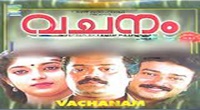
Meharbaan (1967) Full HD Movie Download
.jpg)
Chhoti Behen Full HD Movie Download
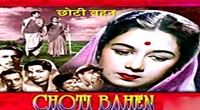
Main Sunder Hoon Full HD Movie Download
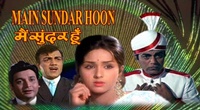
Hum Hain Kamal Ke Full HD Movie Download
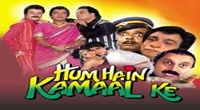
Gulam Begum Badshah Full HD Movie Download
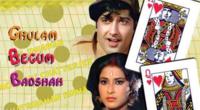
Sharafat Chhod Di Maine Full HD Movie Download
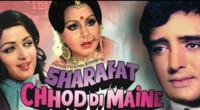
Sarphira Full HD Movie Download
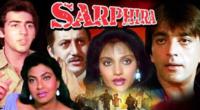
Sindoor (1987) Full HD Movie Download
.jpg)
Bondhu (Bengali) Full HD Movie Download
.jpg)
Anna Full HD Movie Download

Rahasyam Full HD Movie Download
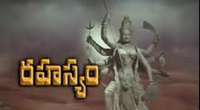
Inception Full HD Movie Download

The Time Travelers Wife Full HD Movie Download

Athirathram Full HD Movie Download
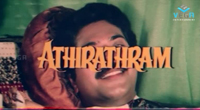
Ezhai Jaathi Full HD Movie Download
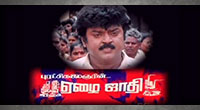
Chenna Kesava Reddy Full HD Movie Download
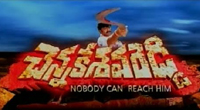
Devi Nagamma Full HD Movie Download
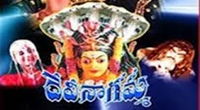
Anusandhan (Bengali) Full HD Movie Download
.jpg)
Ishaqzaade (2012) Full HD Movie Download
.jpg)
Bachna Ae Haseeno Full HD Movie Download
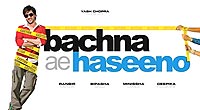
Download latest Movie from bollywood
- 1> baaghi 3
- 2> THE SKY IS PINK MOVIE FULL STORY AND REVIEW
- 3> Luka Chuppi
- 4> TO ALL THE BOYS I’VE LOVED BEFORE
- 5> Kabir Singh
- 6> Street Dancer 3D
- 7> Simmba
- 8> Gone Girl
- 9> The Girl Who Lived
- 10> Ludo
- 11> DILWALE DULHANIA LE JAYENGE
- 12> GUILTY
- 13> The Godfather
- 14> Adventures of Rusty
- 15> Sooryavanshi
- 16> Satyameva Jayate 2
- 17> Thappad
- 18> Bhool Bhulaiyaa 2
- 19> KGFChapter 2
- 20> Mardaani 2
- 21> Pinjar
- 22> Shivaji maharaj
- 23> Ek Villian 2
- 24> Hungama 2
- 25> Divergent
- 26> Mumbai Saga
- 27> The Internship
- 28> HIT (telugu)
- 29> Panga
- 30> The perfect date
- 31> 16 December
- 32> Gopala Gopala (Telugu)
- 33> Brahmastra
- 34> Gangubai Kathiawadi
- 35> Manmadhudu
- 36> Nenu local
- 37> Mahanati
- 38> Shatamanam bavathi
- 39> Lagaan
- 40> After
- 41> MOM
- 42> Shamshera
- 43> Raguvaran BTech
- 44> Khakee
- 45> The villain
- 46> OM
- 47> Mr. perfect
- 48> Bueatifull mind
- 49> Hichki
- 50> Gabbar Singh
- 51> Jogi
- 52> Before Sunrise
- 53> Before Sunset
- 54> Before Midnight
- 55> The Big Bull
- 56> Top Gun: Maverick
- 57> The Purge
- 58> The Sky is Pink
- 59> Laxmmi Bomb
- 60> Sadak 2
- 61> Sufna
- 62> Prithviraj
- 63> PK
- 64> Coolie No 1(2020)
- 65> Black Widow
- 66> Dear Zindagi
- 67> Dil Bechara
- 68> PHIR HERA PHERI
- 69> WAR
- 70> Dostana
- 71> RRR: Roudram Ranam Rudhiram
- 72> Maidan
- 73> Dabbang 3
- 74> Chhalaang
- 75> life as we know it
- 76> SherShaah
- 77> Sandeep Aur Pinky Faraar
- 78> Event Horizon
- 79> 83
- 80> Radhe: Your Most Wanted Bhai
- 81> Gunjan Saxena: The Kargil Girl
- 82> Mr India
- 83> Vivah
- 84> Anokha Bandhan
- 85> Ghost
- 86> Bhoot: Part One - The Haunted Ship
- 87> Haseen Dilruba
- 88> Laal Singh Chaddha
- 89> Qismat
- 90> Rajput
- 91> Drive
- 92> Dil Chahta Hai
- 93> Dil Ki Baazi
- 94> Dil Ka Rishta
- 95> Teesri Manzil
- 96> Dil
- 97> Love Aaj Kal
- 98> Khaali Peeli
- 99> Bunty Aur Babli 2
- 100> Atrangi Re
- 101> Gulabo Sitabo
- 102> Jodi
- 103> Suraj Pe Mangal Bhari
- 104> Deewana
- 105> Attack
- 106> Sardar Udham Singh
- 107> Toofan
- 108> THE LOVEBIRDS
- 109> Jersey
- 110> Ginny Weds Sunny
- 111> Thalaivi
- 112> Shiddat
- 113> Angels vs Zombies
- 114> Koi Mil Gya
- 115> Thank God
- 116> Bhuj: The Pride of India
- 117> Hum Aapke Hain Kaun
- 118> The Platform
- 119> Bird Box
- 120> Roohi Afzana
- 121> Torbaaz
- 122> Nikamma
- 123> World War Z
- 124> Extraction
- 125> Train to Busan
- 126> Life of Pi
- 127> SHAADI MEIN JROOR AANA
- 128> Himmat Aur Mehnat
- 129> To All The Boys: P.S. I Still Love You
- 130> Mimi
- 131> Good Newwz
- 132> Shubh Mangal Zyada Saavdhan
- 133> Raabta
- 134> Harry Potter and the Philosopher's Stone
- 135> Harry Potter and the Chamber of Secrets
- 136> Chhapaak
- 137> War of the Worlds
- 138> Harry Potter and the Prisoner of Azkaban
- 139> Harry Potter and the Goblet of Fire
- 140> MURDER MYSTERY
- 141> Shakuntala Devi
- 142> Bachchan Pandey
- 143> Jayeshbhai Jordar
- 144> Sheer Qorma
- 145> Saina
- 146> 'O' Pushpa I hate tears
- 147> Kedarnath
- 148> MS Dhoni The Untold Story
- 149> Chhichhore
- 150> Badhaai Ho
- 151> Unstoppable
- 152> Oz the Great And Powerful
- 153> The Girl on the Train
- 154> Haathi Mere Saathi 2020
- 155> The Conjuring: The Devil Made Me Do It
- 156> Gandhi Se Pehle Gandhi
- 157> The Song of Scorpions
- 158> Srimanthudu
- 159> Hello Guru Prema Kosame
- 160> Beauty and The Beast
- 161> Black Panther
- 162> Charlie and the Chocolate Factory
- 163> Bole Chudiyan
- 164> Fidaa
- 165> Duvvada Jagannadham
- 166> Bruce Lee: The Fighter
- 167> Hyper
- 168> Yaara
- 169> Red (2020)
- 170> Shivam
- 171> That Is Mahalakshmi
- 172> Nishabdham
- 173> Aashram 2020 web series
- 174> Laxmii
- 175> Mismatched
- 176> STUDENT OF THE YEAR 2
- 177> NAIL POLISH
- 178> Ramprasad Ki Tehrvi
- 179> KAAGAZ
- 180> 12 o Clock
- 181> The Power
- 182> bolo hau
- 183> Tribhanga
- 184> JAMUN
- 185> Madam Chief Minister
- 186> Maasaab
- 187> Aadhaar
- 188> Tanhaji
- 189> Bhaagi 3
- 190> Bhootnath
- 191> MALANG
- 192> Jai Mummy Di
- 193> Haathi Mere Saathi 2021
- 194> Shakeela
- 195> Unpaused
- 196> Annayya
- 197> Vamsoddharakudu
- 198> Mrugaraju
- 199> Narasimha Naidu
- 200> Sankranti
- 201> Manasu Maata Vinadhu
- 202> Anjaane
- 203> Apaharan
- 204> Bachke Rehna Re Baba
- 205> Bewafaa
- 206> Roohi
- 207> Radhe
- 208> Zindagi Khoobsoorat Hai
- 209> Yeh Mohabbat Hai
- 210> Yeh Kya Ho Raha Hai?
- 211> The Tomorrow War
- 212> DehradunDiary
- 213> Meri Shaadi Karaoo
- 214> Matruu Ki Bijlee Ka Mandola
- 215> No One Killed Jesica
- 216> Aag Ka Goola
- 217> Eight Million Dollars
- 218> Three Hundred
- 219> Cats and Dog
- 220> Decoy
- 221> Gold Rush
- 222> You Have Got Mail
- 223> Final Destination three
- 224> Tofan
- 225> Jungle
Request for Download movie Inchon Film
- Bollywood movies
- Latest Bollywood movies
- Download all bengali movies
- Download all bhojpuri movies
- Download all english movies
- Download all gujarati movies
- Download all hindi movies
- Download all kannada movies
- Download all malayalam movies
- Download all marathi movies
- Download all oriya movies
- Download all punjabi movies
- Download all tamil movies
- Download all telugu movies
- Bollywood action movies
- Bollywood adventure movies
- Bollywood animation movies
- Bollywood classical movies
- Bollywood comedy movies
- Bollywood crime movies
- Bollywood devotional movies
- Bollywood documentary movies
- Bollywood drama movies
- Bollywood family movies
- Bollywood fantasy movies
- Bollywood historical movies
- Bollywood history movies
- Bollywood horror movies
- Bollywood musical movies
- Bollywood mystery movies
- Bollywood mythological movies
- Bollywood patriotic movies
- Bollywood romance movies
- Bollywood romantic movies
- Bollywood sci-fi movies
- Bollywood social movies
- Bollywood spiritual movies
- Bollywood sports movies
- Bollywood suspense movies
- Bollywood thriller movies
- Bollywood war movies
- Hot actress list
- Hot gujarati actress list
- Hot tamil actress list
- Hot bhojpuri actress list
- Hot assam actress list
- Hot bihari actress list
- Hot jammu and kashmir actress list
- Hot gujarati actress list
- Hot haryana actress list
- Hot konkani actress list
- Hot marathi actress list
- Hot odia actress list
- Hot punjabi actress list
- Hot rajasthani actress list
- Hot kannada actress list
- Hot malayalam actress list
- Hot telugu actress list
- Hot tulu actress list
- Hot Actress list from Indian city
- Hot actress list from ahmedabad
- Hot actress list from alappuzha
- Hot actress list from bangalore
- Hot actress list from bangalore
- Hot actress list from bhopal
- Hot actress list from chandigarh
- Hot actress list from chennai
- Hot actress list from guwahati
- Hot actress list from hyderabad, india
- Hot actress list from indore
- Hot actress list from jaipur
- Hot actress list from kannur
- Hot actress list from kochi
- Hot actress list from kolkata
- Hot actress list from kollam
- Hot actress list from kottayam
- Hot actress list from kozhikode
- Hot actress list from lucknow
- Hot actress list from madurai
- Hot actress list from mangalore
- Hot actress list from mumbai
- Hot actress list from mysore
- Hot actress list from new delhi
- Hot actress list from patna
- Hot actress list from pune
- Hot actress list from thiruvananthapuram
- Hot actress list from thrissur
- Hot actress list from tiruchirappalli
- Hot actress list from vijayawada
- Hot actress list from visakhapatnam
- All Bollywood Movies
- Bollywood Celeb
- >Art Director
- >Audiography
- >Background Music
- >Banner
- >Choreographer
- >Cinematographer
- >Costume Designer
- >Dialogue Writer
- >Director
- >Distributor
- >Editor
- >Executive Producer
- >Hair Stylist
- >Lyricist
- >Music Director
- >Photographer
- >Playback Singers
- >Presenter
- >Producer
- >Production Company
- >Production Designer
- >Screenplay
- >Singer
- >Sound
- >Actor
- >Story Writer
- >Studio
- >Video Director
- >Miscellaneous
- >Publicity (pro)
- >Web Creator
- >Production Labs
- >Publicity Design
- >Publicity Stills
- >Writer
- >Miscellaneous Artists
- >Visual Effects
- >Reporter
- >Music Company
- >Shooting Studios
- >Picturised On
- >Line Producer
- >Co Producer
- >Asst Director
- >Casting Director
- >Cinematography
- >Choreography
- >Dialouge
- >Editing
- >Lyrics
- >Music
- >Story
- >Playback Singer Female
- >Playback Singer Male
- >Actor In A Comic Role (male/female)
- >Child Artiste
- >Ensemble Cast
- >Actor Popular Choice (male)
- >Actor Popular Choice (female)
- >Sa Re Ga Ma Pa Song Of The Year
- >Actor In Supporting Role
- >Actress In Supporting Role
- >Actor In Leading Role
- >Art Direction
- >Actress In Leading Role
- >Sound Recording
- >Costume Design
- >Special Effects
- >Action
- >Actor In A Negative Role
- >Lifetime Achievement Award
- >Cinematic Exellence (director)
- >Cinematic Exellence (male)
- >Cinematic Exellence (female)
- >International Male Icon
- >International Female Icon
- >Actor In A Supporting Role (male)
- >Actor In A Supporting Role (female)
- >Actor In A Comic Role
- >Playback Singer (male)
- >Playback Singer (female)
- >Most Promising Debut (female)
- >Most Promising Debut (male)
- >Most Promising Director
- >Sound Design
- >Lifetime Jodi
- >Marketed Film
- >Jury Award For Best Actor
- >Jury Award For Best Actress
- >Jury Award For Best Film
- >Jury Award For Best Director
- >Playback Singer(male)
- >Lifetime Acheivement Award (male)
- >Excellence Award
- >Jodi Award
- >Performer Of The Year
- >Presented By
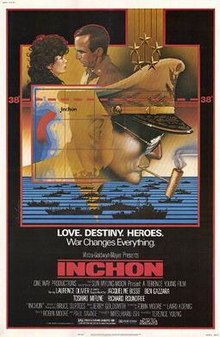 Story of movie Inchon Film :
Story of movie Inchon Film : 